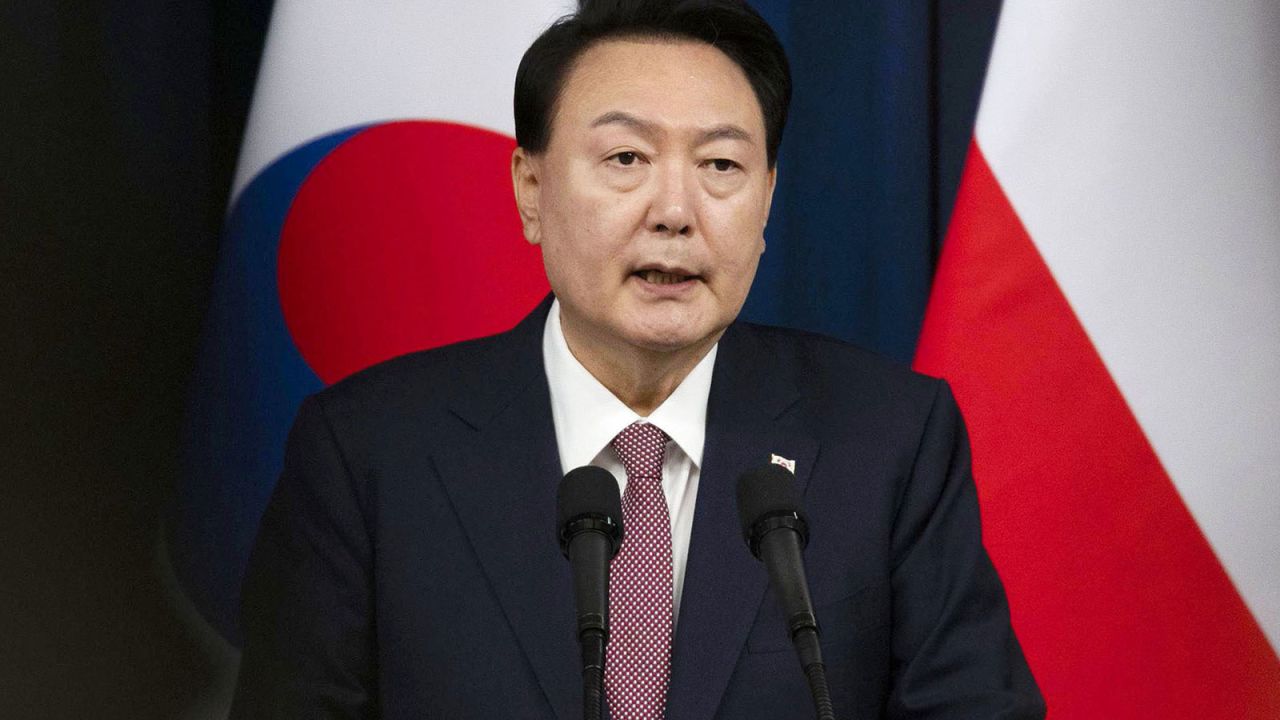
President Yoon of South Korea is prohibited from traveling abroad as the country’s leadership crisis worsens
A justice ministry official said on Monday that South Korean President Yoon Suk Yeol can’t leave the country because of his failed attempt to declare martial law. This comes as more people call for him to step down and the leadership crisis gets worse.
Yoon has apologized for the failed attempt and said that he would let the People Power Party (PPP) decide his political and legal future. However, he has not quit. According to reports in the area, he is now the subject of a criminal probe.
On Monday, the defense ministry said Yoon was still legally commander in chief. However, more and more top military officers are speaking out against the president, which makes it harder for him to keep his power.
During a parliament hearing, Oh Dong-woon, who is in charge of the Corruption Investigation Office for High-ranking Officials, was asked what steps have been taken against the president. He said that Yoon had been banned from traveling to other countries.
A representative from the Justice Ministry named Bae Sang-up told the committee that the travel ban order had been carried out.
The group was created in 2021 to look into high-level officials, including the president and their families. However, it does not have the power to bring charges against the president. The law says that the case must be sent to the lawyers’ office instead.
Yoon escaped an impeachment vote in parliament on Saturday, but his party’s choice to give the prime minister power from the president has caused a constitutional crisis in a key U.S. ally.
Yoon has refused to quit, even from some in his own ruling party. But over the weekend, Yonhap news agency said he was being investigated for treason, which made his future look less certain.
Yonhap reported that on Sunday, Kim Yong-hyun, who used to be the defense minister, was arrested because of his alleged part in declaring martial law on December 3.
On December 3, Yoon declared a national emergency and gave the military broad powers to get rid of what he called “anti-state forces” and political opponents who were getting in the way. After parliament voted against the order six hours later, he took it back.
Some military leaders, like the acting defense minister, have said they won’t follow any new orders to declare martial law again because of the pushback.
Most of the opposing parties, including the Democratic Party (DP), want Yoon to lose control over the military. The DP also wants Yoon and any other military leaders involved in the martial law mess to be arrested.
Yoon’s party set up a task force to handle his “orderly” resignation, and Lee Yang-soo is in charge of it. He said that the team would look at all options and times for the president to leave early “without any limitations.”
On Sunday, Han Dong-hoon, the head of the PPP, said that the president would not be involved in foreign or other state matters. Instead, he said that Prime Minister Han Duck-soo would be in charge of running the government.
Opponents of that plan say it is illegal, which is why they are against it. It says that Yoon must be removed from office or quit and be charged with a crime. Another impeachment bill will be introduced on Saturday.
A professor at Korea University’s School of Law named Chang Young-soo said that the president could give power to the prime minister, especially control over the military. However, there is disagreement about whether the prime minister has the power to act as head of state in diplomatic issues.
“Also, unlike the vice president of the United States, the prime minister of South Korea is not elected. This means that democratic legitimacy is weak.” What will also be important is how long this system can last, he said.
A BACKLASH IN THE ARMY
Lee Jae-myung, the leader of the opposition, said on Monday that the political crisis could hurt Asia’s fourth-largest economy, which is a big supplier of memory chips around the world, in a way that couldn’t be fixed.
South Korea’s finance minister and regulators said they would do everything they could to get the financial markets back on track by the end of December. They said they would use backup plans and increase liquidity.
The leader of South Korea’s special forces said last week that he was told to send his troops into parliament to stop a vote to end martial law. This is the latest sign of discontent within the military.
The leader of the 707th Special Missions Group, Colonel Kim Hyun-tae, said he was responsible for what his troops did, but he was following orders from Kim Yong-hyun, who was the defense minister at the time.
To reporters outside the defense ministry, he said, “We were all used by the former defense minister.”
For fear of being stopped, he said he hadn’t told the military about his plan to talk to the reporters.
Calling for emergency rule by Yoon led to protests in the streets and worried Seoul’s friends.
Plans for U.S. Defense Secretary Lloyd Austin to go to South Korea were canceled, and Secretary of State Antony Blinken called his South Korean colleague and said he thought the democratic process would win.
Because of the 1950–1953 Korean War, the US has 28,500 troops stationed in South Korea.
The unrest in Seoul is happening at a crucial time for regional politics. North Korea is said to be sending troops to help Russia fight Ukraine, and military ties between Moscow and Pyongyang are growing.
The foreign minister of South Korea, Cho Tae-yul, told ministry staff, “We must also keep working to win back the trust of our partners and live up to what the rest of the world expects of Korea.”
All Categories
Recent Posts
Tags
+13162306000
zoneyetu@yahoo.com



